Political analyst Dániel Hegedűs sat down with CEA Magazine to analyze the upcoming German federal election, and explained why the FDP has the best chance to be the kingmaker after the ballot. He also talked about why he doesn’t expect a shift in the German-Hungarian relations and why Angela Merkel has a dark stain on her political legacy.
Host: Balázs Csekő
Germany’s final “Triell”, an election debate between chancellor candidates of the three leading parties last Sunday, didn’t bring any surprising breakthrough and went in the same direction than previous meetings between them. The latest election confrontation between Olaf Scholz (SPD), Armin Laschet (CDU) and Annalena Baerbock (The Greens) was less about which party was clinching the crown at the end of the election campaign, but more about a competition for the second place.
After CDU candidate Armin Laschet failed to introduce any type of big turn in the party competition between the SPD and CDU, the road to election victory for the Social Democrats seems to be secured. Latest polls highlight a solid advantage in public support for the party of Olaf Scholz, but will it be enough to take control of the German Federal Chancellery?
Issues like the Wirecard scandal are more of a hurdle for the SPD leader, nevertheless his party is expected to cross the finish line first in tomorrow’s vote. “There can be, nevertheless, surprises regarding the winner and the second most voted party,” political analyst Dániel Hegedűs said.
FDP as kingmaker
Would a second spot for the CDU mean a complete disaster for the party? Not necessarily. Even if the Christian Democrats fail to win the election, they could remain in power and maintain the German Chancellor’s Office. “Due to the changing position of the liberal FDP in recent weeks, however, this is not the most likely scenario anymore.”
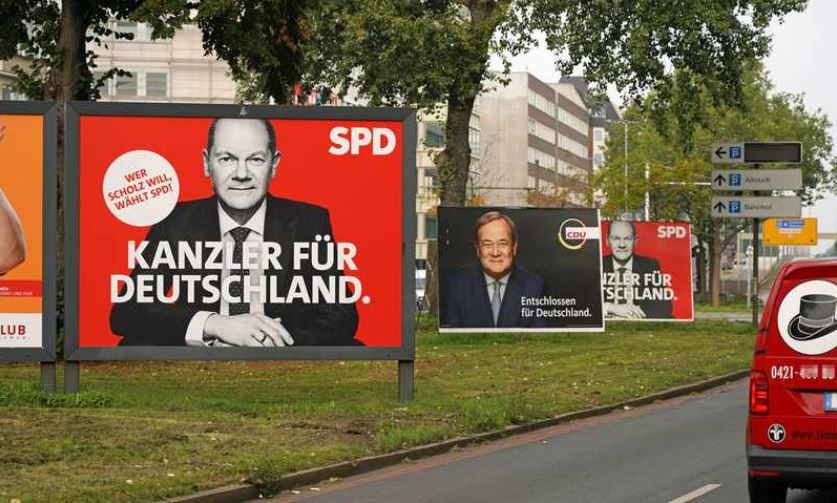
Photo credit: Eckhard Stengel, Imago Images
FDP leader Christian Lindner has been reorienting his party and preparing it for coalition talks with every major political force. His preference for the CDU continues, but his party’s doors are open for negotiation with the SPD and the Greens. “Lindner and the FDP will be the kingmakers of this election,” Mr Hegedűs is certain.
The party’s conditions are already on the table: no raising taxes and no weakening up of the constitutionally anchored debt break. The FDP conditions make the financing of the SPD and Green government’s programs look impossible and forecast some tough coalition talks after the ballot.
CDU–FDP–Greens?
Even if the CDU enters into coalition with the FDP, they will require another partner to secure the majority in the Bundestag and possibly make the ‘Jamaica coalition’ a reality. The Greens have long prepared themselves for a coalition with the Conservatives. This shouldn’t come as a surprise. In neighboring Austria, a similar coalition on the federal level has been political reality for almost two years. The Greens’ main goal is putting their climate program first. “If they get this on policy level, the ideological distance is absolutely a second ranking issue,” the expert claimed.
The question of crucial ministries will have a distinguished role in the coalition talks. Both the Greens and the FDP are favoring the same departments (Finance, Economy and Environment) for the implementation of their program. The fate of the coalition negotiations will revolve, most likely, around which party gets the Finance ministry.
Impact on the EU?
In the past months, a series of analyses have put the legacy of Angel Merkel under microscope and questioned what could happen with Angela Merkel stepping down. “A life after Merkel is possible,” Mr Hegedűs claimed.
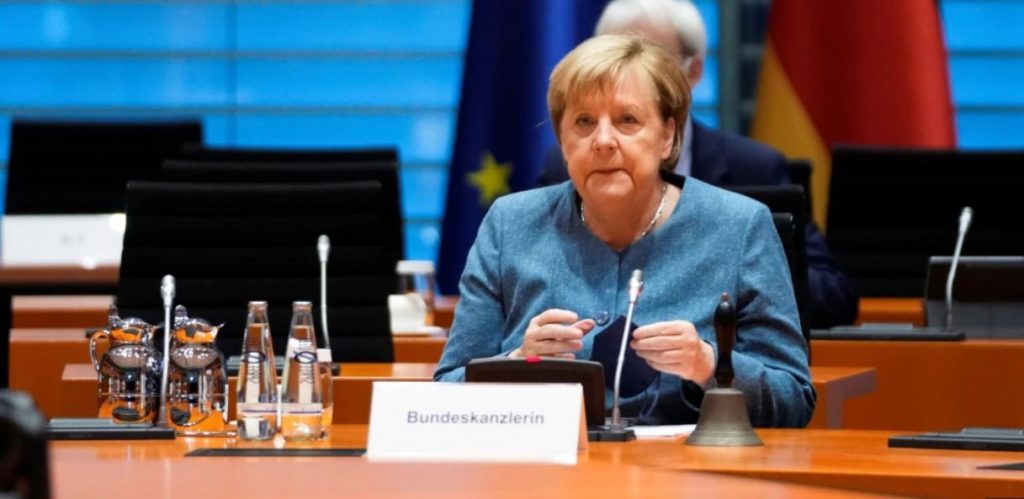
Photo credit: Markus Schreiber, Pool via Reuters
The analyst doesn’t expect an immediate effect of a new German government on EU politics, but some political vacuum in the EU decision making. Other European leaders could take over the role of Angela Merkel and lead the European Union, like French President Emmanuel Macron.
The upcoming period could also bring more divisive politics at the EU level than previously. “Consent and dialogue are the DNA of the European integration, but some more straightforward political speech wouldn’t necessarily hurt the European integration,” the analyst assured.
German-Hungarian relations
In Hungarian opposition circles, the expectation is big that a new German government could take in a more critical attitude towards autocratizing EU member states in Central and Eastern Europe. “I agree that there can be slight changes in the rhetoric, but I don’t expect any fundamental changes.”
Several reasons clearly don’t favor the opposition expectations in Hungary. The structural constraints and the traditions of the German foreign policy thinking will not change with Merkel’s farewell. It wasn’t only Angela Merkel’s decision to address Hungary’s democratic backsliding. The decisions were rooted in the consent and dialogue-oriented culture of the German foreign policy. German national interests are seen through an economic lens and there are no changes to be expected with a new government.
The current German Chancellor’s legacy towards the Hungarian prime minister Viktor Orbán is, at the same time, a shared legacy of the Social Democrats. Out of Merkel’s 16 years in power, the SPD has governed with the CDU for 12 years, and been in charge of the Foreign Ministry for 12 years. Should the CDU be not part of the next federal government, the SPD will have the chance to go down more of an ideological path towards the Hungarian Government.
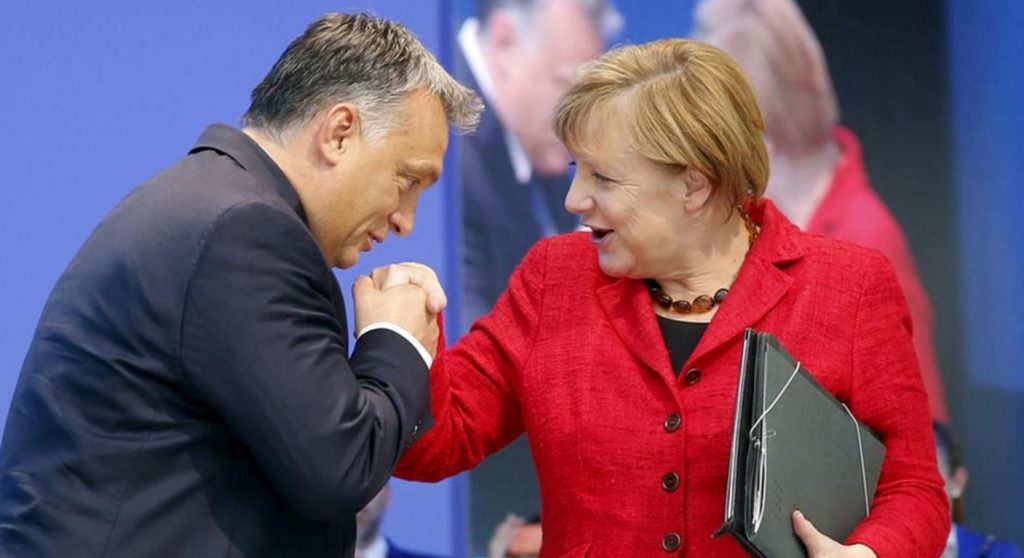
Photo credit: A. Comas, Reuters
Another decisive question is which party will be in charge of the Foreign Ministry. The FDP and the Greens have different priorities and are currently competing for other ministries. “German political tradition says that the Foreign Ministry belongs to a minor coalition partner, meaning that it will be a leftover ministry that no one really wants,” the expert said.
“I don’t think the tone of the bilateral relations will be much sharper than until now. It would be rather alien from the approach how German diplomacy is approaching its Central and Eastern European neighbors.”
Merkel’s legacy
Mr Hegedűs sees Angela Merkel’s legacy after more than a decade in power “very much mixed”. Her political career overarched the three main crises which hit the EU in the first 20 years of the 21st century.
Merkel’s management of the Eurozone’s sovereign debt crisis is “highly positive”. The EU integration was heavily put into play and survived the greatest economic shock since the Great Depression thanks to the German Chancellor’s leadership. New capacities and institutions were deployed to protect the Eurozone from similar shocks in the future. “It’s a big achievement.”
Another critical point was the 2015 refugee crisis. In spite of the political turmoil, and the surge of populist radical right forces that were caused by Merkel’s decision of opening up Europe’s borders to refugees and migrants from the Middle East, “she was able to grow out of the ruins as the unchallenged leader of the liberal world.”
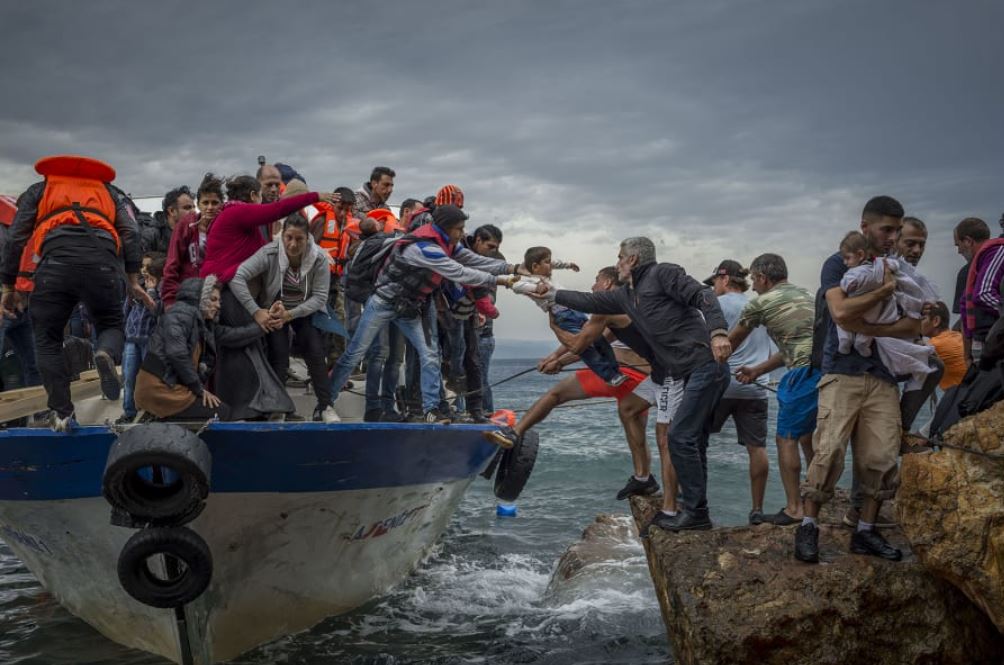
Photo credit: Antonio Masiello, NurPhoto via ZUMA Press
Regarding the emergence of rule of law crises in EU member states like Hungary and Poland, the German chancellor is leaving an unsolved problem to her successors and her decisions clearly “aggravated” the situation.
“She is responsible for the fact that Mr Orbán and Kaczyński could go to systemic challenges for the European integration and that is a very dark stain on her political legacy.”
Cover photo credit: Bernd Wüstneck, dpa
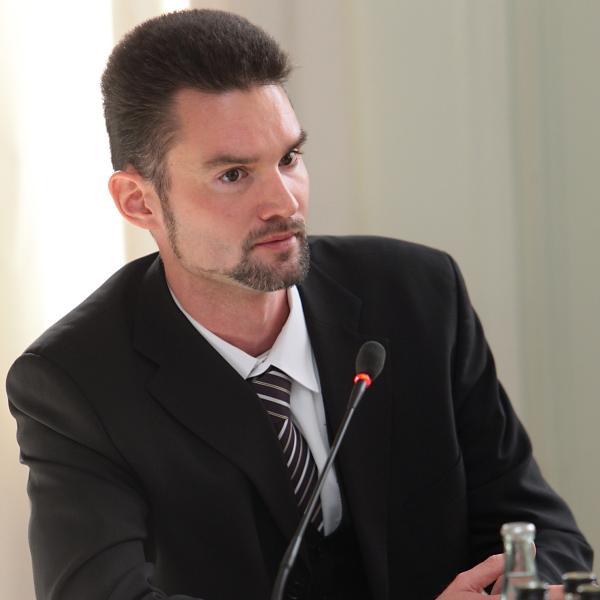
Dániel Hegedűs is a political analyst, international relations expert and a fellow at the German Marshall Fund. He writes and speaks extensively on populism and democratic backsliding in Central and Eastern European countries. He studied political science, history, and European law at the Eötvös Loránd University in Budapest and the Humboldt University in Berlin.
Twitter: @DanielHegedus82
Photo credit: Twitter



